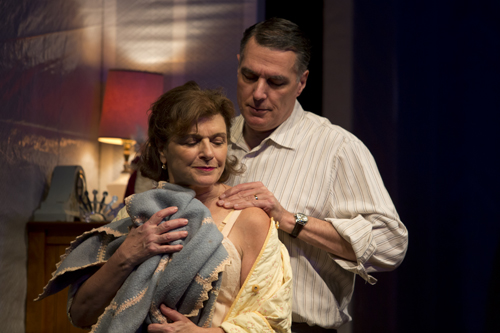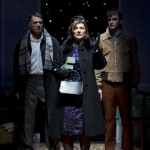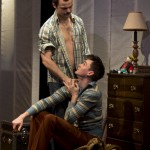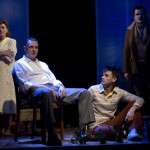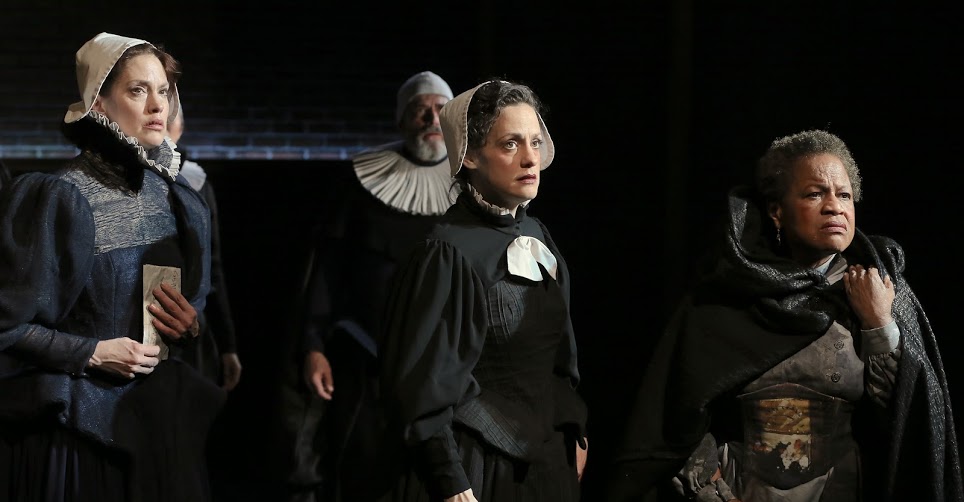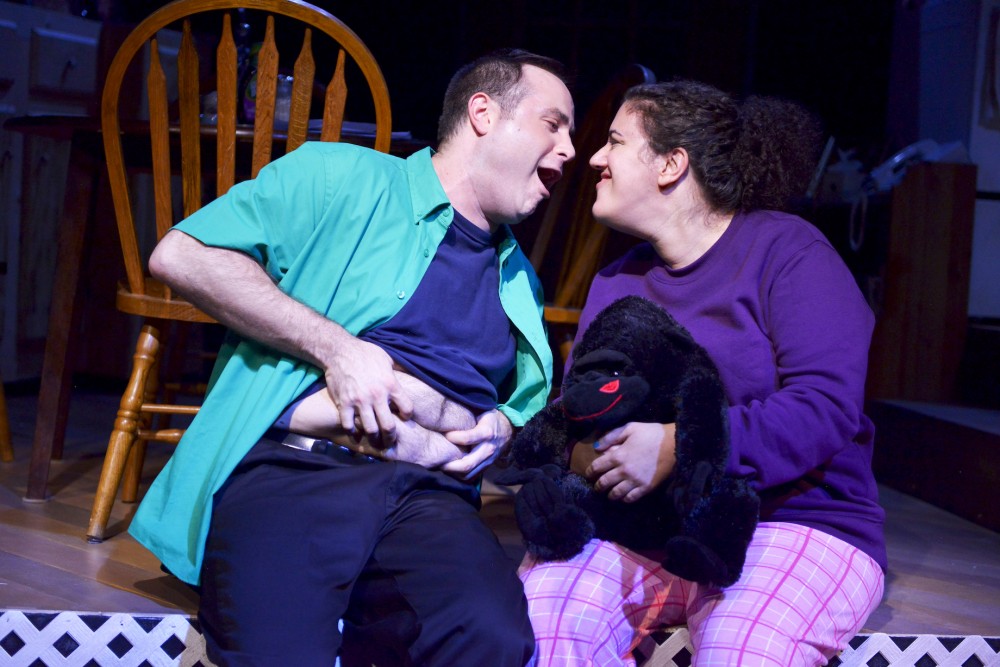A dark look at an Italian-American family in the 1960s, saved by the author’s knowledge of the milieu and a cast of game actors.
By Joel Benjamin
Joe Pintauro’s Snow Orchid at the Lion Theatre is so unremittingly and agonizingly dark that it almost comes out the other end, flirting with satire. Here is a Brooklyn Italian-American family with problems of Greek tragedy proportions. Each member of this family is so tightly wound up in their own tsouris they cannot see the metaphorical forest for the trees, that each is his or her own worst enemy. It’s the detailed writing and ensemble acting that keeps Snow Orchid from sinking either into an unbearable torpor or over-the-top ethnic farce.
It is 1964 Brooklyn in the Lazarra household where Filumena (Angelina Fiordellisi), the mother and her two sons, Sebbie, short for Sebastian (Stephen Plunkett) and Blaise (David McElwee) sullenly await the arrival of family head Rocco (Robert Cuccioli) who has spent some time in a sanitarium after an incident years before in the Holland Tunnel (which is never fully explained). Rocco abused his wife and two boys, all three of whom have responded to their physical and mental abuse in different ways. Filumena, a war bride from Italy, now plump and middle aged, hasn’t set foot outside their house for years and relies way too much on her sons, particularly Sebbie with whom she has a near-incestuous relationship. Her two sons speak to her in a cheeky manner, calling by her name rather than Mom and refer to Rocco in the basest ways. Blaise, the younger son, has had his life turned around, a promising young man now in dead-end jobs and failing at romance. Sebbie works at a auto body shop to keep the household going and is a closeted homosexual, something considered pretty catastrophic in this working class Italian milieu. His lover, fellow worker Doogan (Timothy Hassler) arrives at the end of the play as a kind of outside observer.
When Rocco finally arrives he is carrying orchids. While away in the institution, he learned to grow them and they represent a grace note of beauty and peace amidst the vitriolic household. Of course, the orchids don’t survive, done in by a fit of anger. The four family members snarl at each other, hurl invectives, make futile efforts at peace and seem to be about to murder each other. It’s to Mr. Pintauro’s credit that just as the mood darkens and violence is the next logical step, he allows his characters ways out of their personal emotional prisons, injecting the tiniest rays of hope with an ending that is emotionally logical and dramatically satisfying.
The set by Patrick Rizzotti was on the cheap side and a bit confusing. The walls were constructed with plastic covered wooden frames that made them semi-transparent. If the effect Mr. Rizzotti was going for was some sort of symbolism, he failed. The furnishings were totally in line with the period and social class. Brooke Cohen’s costumes, particularly those for Filumena were excellent.
Although the cast still needs some time to get on top of their rhythms and interactions, it’s clear that Valentina Fratti, the director, has all the right ideas. The five actors are excellent and will get even better as the run progresses.
Snow Orchid – February 3-28, 2015
Lion Theatre/Theatre Row 410 West 42nd St., just west of 9th Avenue New York, NY
Tickets: 212-239-6200 or www.telecharge.com More information: www.snoworchidtheplay.com
Running time: 2 hrs. 15 minutes, one intermission


